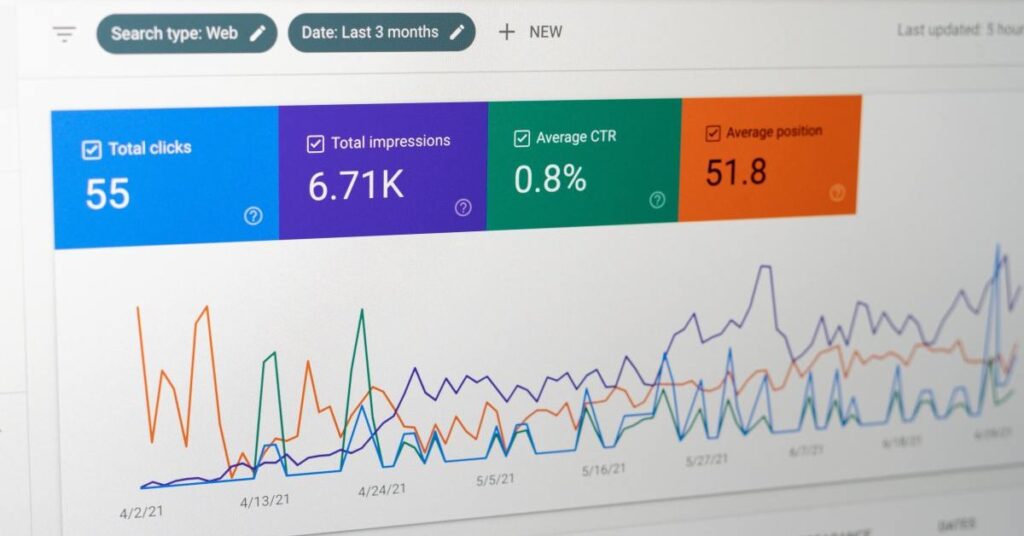
Where Can a Family Nurse Practitioner Work?
You'll find FNPs in primary care clinics, hospitals, urgent care [...]

A master's degree in statistics offers graduates a breadth of career opportunities in nearly every industry imaginable. Career paths are seemingly limitless, from mathematical statistics in the financial sector to data analytics in healthcare. But can you complete a master's program in statistics online?
Statisticians use data to reveal hidden truths to benefit diverse organizations that include corporations, government offices, and healthcare facilities. Using statistical methods like data modeling and visualization, they undertake statistical analysis to inform everything from financial decisions to health advisories.
If that all sounds dry and dull to you, think again. “Statistics is a wonderful discipline,” statistician Stephen Senn asserts, adding that the discipline “deals with the very essence of the universe: chance and contingency are its discourse and statisticians know the vocabulary.” Anyone who fails to understand this is “either wrong or in need of a more interesting job.”
It takes a lot of education to plumb the universe’s essence. According to the government career website O*Net, 65 percent of professional statisticians hold a master’s degree. Another 20 percent possess a doctorate.
Alas, graduate study presents unique challenges. Most prospective graduate students are adults, many with adult responsibilities that include family and jobs. Fortunately, online education—which offers conveniences to accommodate adult learners— has advanced dramatically since its inception. Today, many schools dedicate resources to provide online students with benefits traditionally found on campus. Students often work in groups on projects and may be placed in cohorts to facilitate communication and networking opportunities. Many programs provide students access to real-world data sets, especially during their capstone (thesis-like) project.
Students can take advantage of the inherent benefits of distance learning, which include schedule flexibility and expanded program choice. For this reason, working students often choose online graduate programs.
So, can you earn a master’s in statistics online? This article explores that question further and covers these topics:
Schools often offer their statistics degrees as either a Master of Science in Statistics or a Master of Science in Applied Statistics. These are hardly the only options in the field, however. Other degree programs in data science or data analytics cover many comparable topics. Data science programs include coursework in subjects like machine learning, programming, and coding in addition to traditional statistics courses. Statistics programs tend to offer these subjects as electives.
Graduate-level study of statistics typically includes courses in:
Becoming a statistician is one obvious career path for those with a master’s in statistics. The United States Bureau of Labor Statistics (BLS) notes that these professionals develop models to analyze data and employ data visualization techniques to make the information usable for their employers, most often corporations and government agencies. The BLS reports that statisticians earn a median annual income of over $95,000. Those who work for the federal government make more—nearly $115,000.
Data scientist stands out as another promising career opportunity for master’s degree holders. The BLS notes that these professionals, who gather and order data, glean insights, and convey them using data visualization and other techniques, earn over $100,000 per year. These professionals frequently use advanced techniques like machine learning to complete their work.
Data scientists spend much of their time preparing raw data, providing the results to data analysts who further work the data to glean insights. Glassdoor reports that data analysts can earn over $70,000 in total pay annually.
Biostatisticians work with natural science, public health, and environmental science data. These professionals use longitudinal analysis and modeling methods to pursue their insights. Biostatistics pays comparably to traditional statistics.
The BLS projects high growth rates for many of these roles in the coming years. It projects an employment change of 31 percent and 36 percent for statisticians and data scientists, respectively, from 2021 to 2031.
U.S. News & World Report reports that statisticians have excellent job satisfaction. They benefit from less than average stress, more flexibility, and job mobility. The publication ranks statistician as the eighth-best job in the nation.
Stats jobs typically offer excellent benefits, in addition to high pay. According to the BLS, the federal government hires the highest percentage of statisticians, employing 15 percent of all professionals in the field. Federal workers receive high-quality health insurance, retirement planning, student loan forgiveness, and more. Federal employees also enjoy excellent job security.
The high demand for statisticians means private sector positions can come with excellent salaries and benefits. Top jobs typically go to applicants with a master’s degree or higher.
One simple reason to earn a master’s in statistics degree is that it is a requirement for the job you want. According to O*Net, only 15 percent of statisticians have a bachelor’s degree only.
Data science professionals can use their knowledge and skills in many ways and in almost every industry. You might specialize in business intelligence or robotics or healthcare informatics. There are almost too many options.
90 percent of data scientists hold master’s degrees, and 47 percent hold doctoral degrees. (source)
The Bureau of Labor Statistics sets median data scientist annual pay at just over $100,000. Top-paying sectors include (source):
- Computer and peripheral equipment manufacturing ($148,290)
- Semiconductor and other electronic equipment manufacturing ($142,150)
- Specialized information services ($139,600)
- Data processing, hosting, and related services ($126,160)
- Accounting, tax preparation, bookkeeping, payroll services ($124,440)
| University and Program Name | Learn More |
|
Pepperdine University:
Online Master of Business Administration
|
|
|
Tufts University:
Master of Science in Data Science
|
|
|
Merrimack College:
Master of Science in Data Science
|
|
|
Stevens Institute of Technology:
Master of Science in Data Science
|
Statistics programs translate nicely to online study. Unlike other fields, statistics doesn’t rely on in-person labs. Online programs typically have the same coursework requirements as in-person programs. Respected master’s programs uphold rigorous educational standards, no matter the learning environment.
Master’s in statistics courses (for traditional or applied statistics) cover topics like:
A data analytics program, like the one at Butler University may include courses like:
Programs frequently offer opportunities to customize your education. Electives and concentrations can change your learning path drastically. For instance, Butler’s master’s in data analytics program offers two concentrations—healthcare analytics and business analytics.
Earning a master’s in statistics typically takes two years, though several factors influence the total time commitment. Working students who pursue a part-time option usually spend longer in school than full-time students. Those who enter accelerated programs can complete their studies in less time.
The admissions requirements for master’s in statistics programs are not standard, differing by school. Butler requires a bachelor’s degree in any subject and admits only students with an undergraduate GPA of 3.0 or higher. Other programs prioritize applicants with degrees in mathematics, computer science, or related majors. Even if your school does not require a relevant undergraduate degree, having one is often helpful as it prepares you to take on graduate-level coursework.
Many schools that accept career changers impose prerequisite coursework requirements. Applicants may need to complete bridge courses like linear algebra, statistics, and calculus before enrollment. These makeup courses prepare students for the rigors of graduate-level statistics.
The application process for statistics master’s programs is usually straightforward. Applicants submit their undergraduate transcripts, resumes, letters of recommendation (typically from employers or former professors), and a statement of purpose. More schools are also adopting GRE-optional admissions policies.
Working students may need employer approval to attend school. Fortunately, many employers who do approve also offer to pay for school. Students who take advantage of employer funding may have to sign a contract to work at their current company after graduation.
Questions or feedback? Email editor@noodle.com

You'll find FNPs in primary care clinics, hospitals, urgent care [...]

Epidemiologists work in many settings, including hospitals, universities, and federal, [...]

According to the Bureau of Labor Statistics, artificial intelligence and [...]

Modern business intelligence is all about data, which is why [...]

Modern businesses seek objective, quantifiable information to drive business decisions. [...]
Categorized as: Business Intelligence & Analytics, Data Science, Information Technology & Engineering